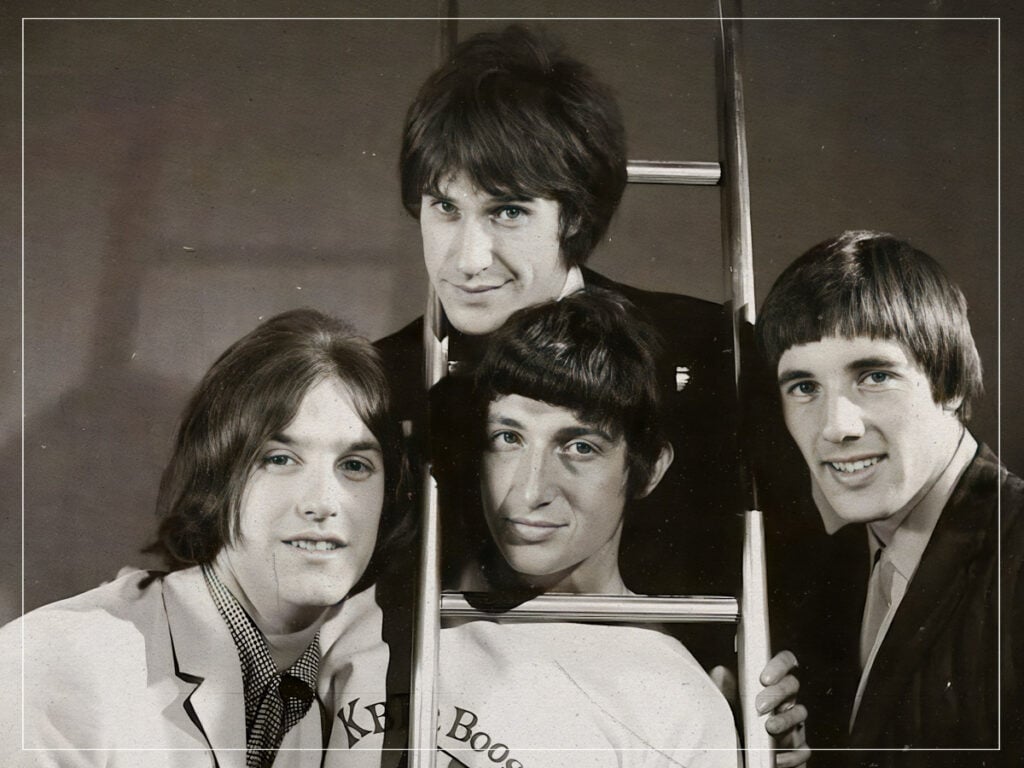As artists evolve, it’s common for them to distance themselves from their early work. Whether it’s due to the overexposure of their songs or a feeling that their newer material is superior, many musicians find it hard to look back with fondness on the sounds they once crafted. For a band like *The Kinks*, whose journey was marked by internal conflict—particularly between brothers Ray and Dave Davies—it seems unlikely that they would regard their tumultuous early years with nostalgia. Yet, despite these tensions, the music created by *The Kinks* has endured, resonating with audiences across generations.
At the heart of this longevity lies the groundbreaking music the band created during the 1960s, a time when London was at the center of a cultural revolution. As part of the so-called “British Invasion,” *The Kinks* helped define the sound of a generation with tracks like *“You Really Got Me”* and *“All Day and All of the Night”*. These songs weren’t just hits—they 
However, Ray Davies was never one to be confined to any one sound. His songwriting range was far broader than the brash rock tracks that initially earned the band their following. As *The Kinks*’ discography expanded, so too did Davies’ ability to craft songs that spanned a wide array of styles and moods. From the wistful, poetic beauty of *“Waterloo Sunset”* to the biting social commentary in *“Lola”*, Davies’ work consistently evolved, showcasing his remarkable versatility. But it was his 1967 album *The Kinks Are the Village Green Preservation Society* that became one of his crowning achievements—a record that, despite its initial commercial failure, would later come to be regarded as one of the most important albums in British rock history.
Released just three months before *The Beatles’* *Sgt. Pepper’s Lonely Hearts Club Band*, *The Village Green Preservation Society* was a remarkably ambitious album, blending social commentary, nostalgia, and character-driven storytelling in a way few bands had attempted before. It was a precursor to the concept album, a form that would later be embraced by artists like *Pink Floyd* and *The Who*. At its core, *The Village Green Preservation Society* was a meditation on the idea of preservation—the desire to hold onto a vanishing past in the face of rapid societal change. Its songs, such as *“The Village Green”* and *“Do You Remember Walter?”*, are filled with a kind of bittersweet yearning for a simpler, more idyllic time, even as they critique the very idea of preserving that nostalgia.
For all of its ambitious artistic qualities, however, the album was not an immediate success. It was *The Kinks’* first record to fail to chart in the UK, a disappointing outcome that left the band, and particularly Ray Davies, struggling to understand why such a deeply personal and carefully crafted album had not found a wider audience. Yet, over time, the album’s significance became undeniable. It was rediscovered by fans and critics alike, hailed for its intricate songwriting, its thematic depth, and its timeless quality.
Ray Davies himself has spoken fondly of the album in later years, and it’s clear that *The Village Green Preservation Society* holds a special place in his heart. In a 2011 interview with *Rolling Stone*, he reminisced about the recording process, recalling the days spent at Konk Studios, the band’s home base in North London. *“It’s an anonymous little building in a working-class area of London,”* Davies said, reflecting on the intimate connection he had with the studio. *“I know every corner of the place, where to get good sounds, and where not to stand because the floorboard has been creaky for 20 years. There’s a lot of history in there.”* For Davies, this history was inseparable from the music itself, particularly *The Village Green Preservation Society*, which he acknowledged still impressed him years after its release.
In many ways, *The Kinks Are the Village Green Preservation Society* serves as a bridge between the old and new generations of British songwriters. While the band’s early, raw rock anthems helped shape the rise of punk and alternative rock, this record represented a more reflective, mature side of Davies’ songwriting. It was an album that examined societal shifts through the lens of personal memory, all while never losing its bite. In its ability to address universal themes—nostalgia, change, and the passage of time—*The Village Green Preservation Society* became an album that resonated beyond its immediate context.
Today, *The Kinks* are remembered not only for their contributions to rock and punk but also for their ability to evolve artistically without sacrificing their distinctive voice. *The Village Green Preservation Society* remains one of Ray Davies’ greatest triumphs, a testament to his ability to transform personal reflection into universally relatable art. It’s an album that, despite its initial lack of commercial success, has endured and grown in stature, just as Davies himself continues to reflect on its timeless appeal. For anyone seeking to understand the depth and breadth of *The Kinks’* influence, *The Village Green Preservation Society* is essential listening—an album that continues to impress, even in the decades after its release.
Leave a Reply